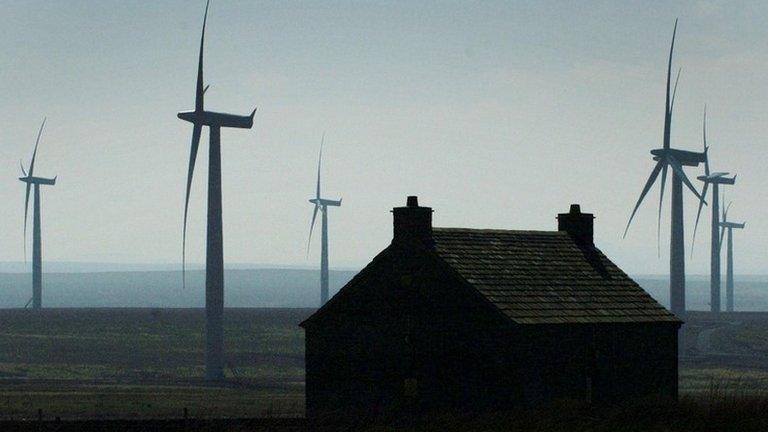Scottish greenhouse gas emissions rise
- Published
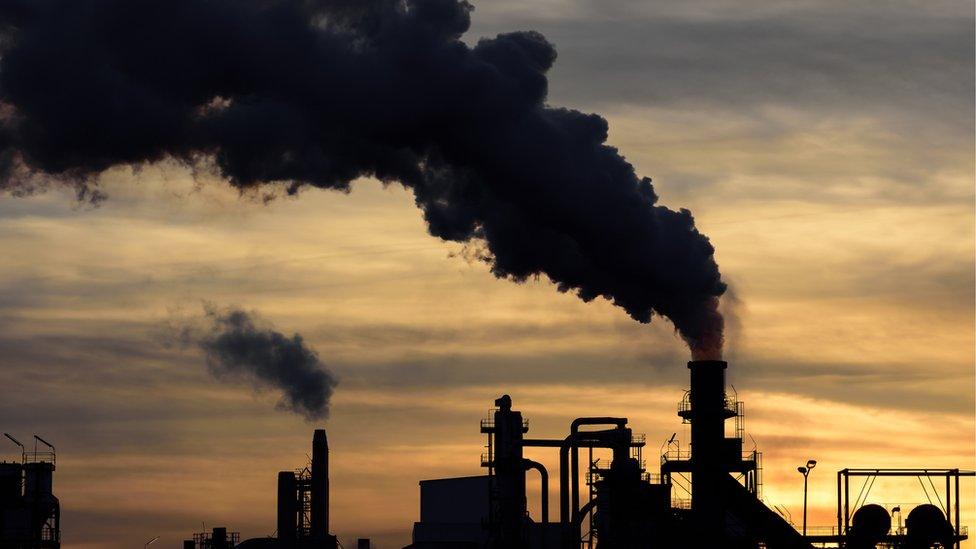
The Scottish government said Scotland remained "comfortably on track" to meet its 2020 target
Greenhouse gas emissions in Scotland have risen but the statutory target for 2015 has been met, according to the latest figures.
They show emissions in 2015 were 41% below the levels for 1990, a benchmark against which targets are set.
Last year saw a record reduction of 45.8% which not only met the annual target but exceeded a medium-term aim to reduce emissions by 42% by 2020.
It means total emissions since 2014 are 1.8% higher.
The statistics appear to support claims from environmental groups that the 2020 target was only met because of an unseasonably mild winter.
The latest statistics will be a disappointment to ministers who have positioned Scotland as a world leader in tackling climate change.
But Climate Change Secretary Roseanna Cunningham said Scotland's status would be reinforced by a new proposal to reduce greenhouse gas emissions by at least 90% by 2050.
Ms Cunningham announced the new target as she gave a statement in the Scottish Parliament on the publication of the 2015 statistics.
'Blue carbon'
The minister also told MSPs about climate change measures including the reopening the Climate Challenge Fund for 2018-2019 applicants, which the Scottish government said would build on an £86m investment since 2008.
There will also be investment in research to understand the benefits of "blue carbon" - the carbon captured in oceans and coastal ecosystems.
Ms Cunningham said Scotland remained "comfortably on track" to meet its 2020 target.
She added: "The statistics also show that we continue to outperform the UK as a whole, with our efforts to drive forward transformative change in our energy system clearly paying off.
"We always knew meeting our ambitious targets would be tough and that they bring a number of challenges, as well as opportunities.
"Our draft Climate Change Plan sets out a package of measures across transport, heat, electricity generation and energy efficiency which will help us go further."
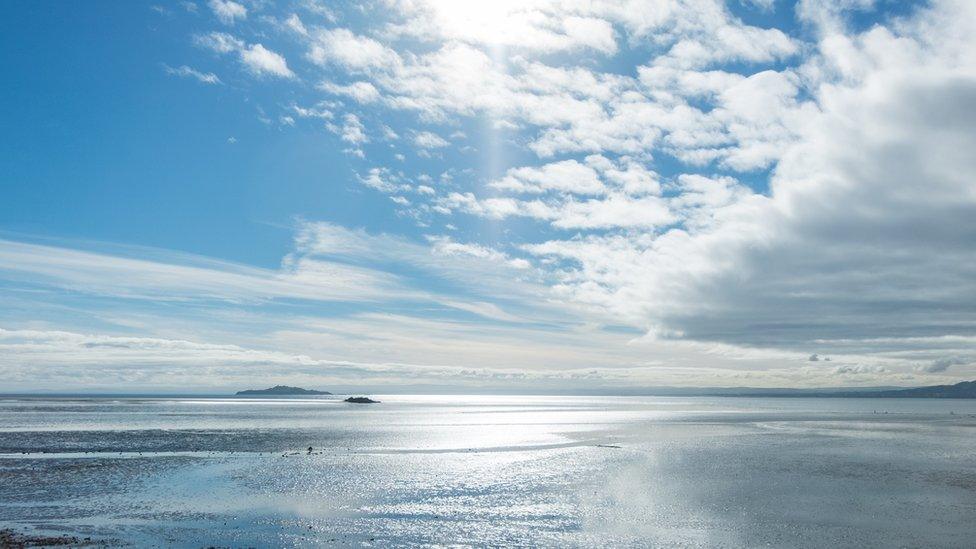
More money will be spent on how oceans and coastal ecosystems capture carbon
The figures for all years are adjusted annually to reflect the increased understanding of greenhouse gas emissions.
They are also adjusted to reflect Scotland's participation in the complex EU-wide Emissions Trading Scheme.
A second set of figures, on source emissions, shows a fall of 3% since 2014.
Until last year, the annual target had been missed on four consecutive years.
But retrospective adjustment of the figures, based on an increased understanding of emissions, mean all those previous targets were actually met.
When it comes to source emissions, transport has overtaken energy supply as the biggest contributor.
This is attributed to a decrease in the amount of coal being burnt at the Longannet Power Station.
There has also been a shift in reliance on nuclear power, which represents 34.7% of demand compared with 25.7% in 2007.
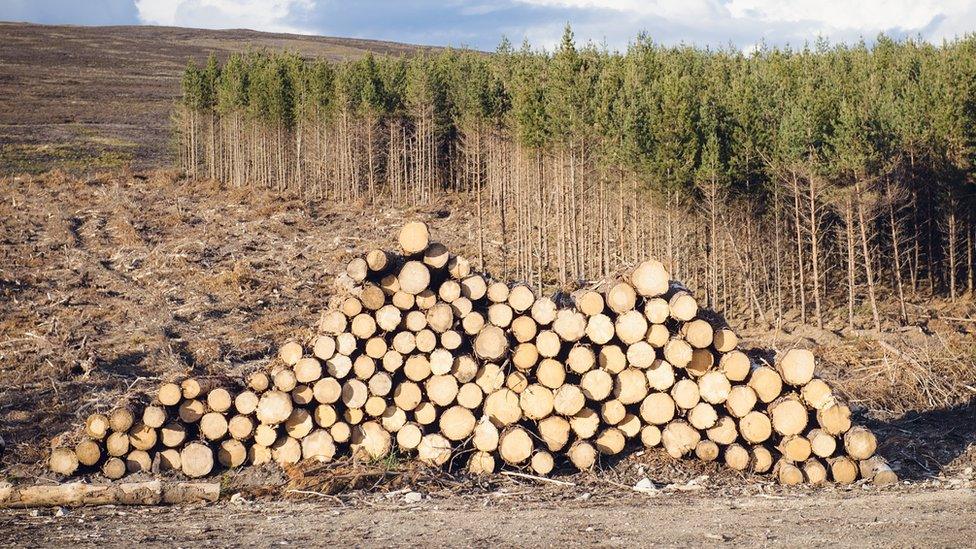
There are more trees being felled annually in Scotland than are reaching maturity
The largest shift is in forestry which has seen a significant fall in the amount of carbon soaked up by trees.
A shortage of planting around the 1980s means there are more trees being felled annually than are reaching maturity.
Jim Densham, from Stop Climate Chaos Scotland, said the figures showed real progress was being made towards securing a "clean energy revolution".
"To hit future climate change targets we now need to build on the early successes to supercharge action on key areas," he said.
"These include homes, farming and particularly transport, which is for the first time the largest source of emissions.
"Transport pollution has been stubbornly high for decades and we need significant action to catch up with other nations such as India and Norway which are planning to end the sale of fossil fuel cars by 2030."
- Published14 June 2016
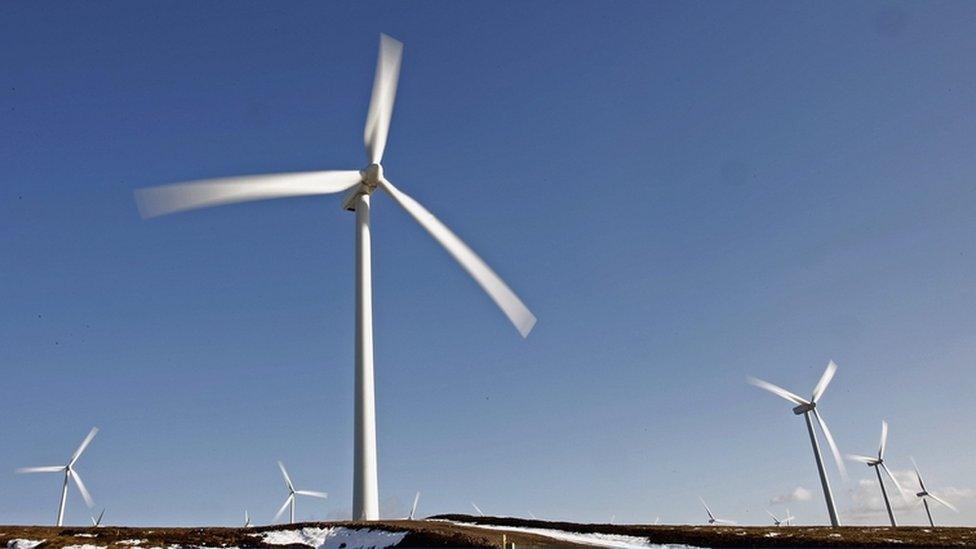
- Published15 March 2016

- Published10 March 2016
